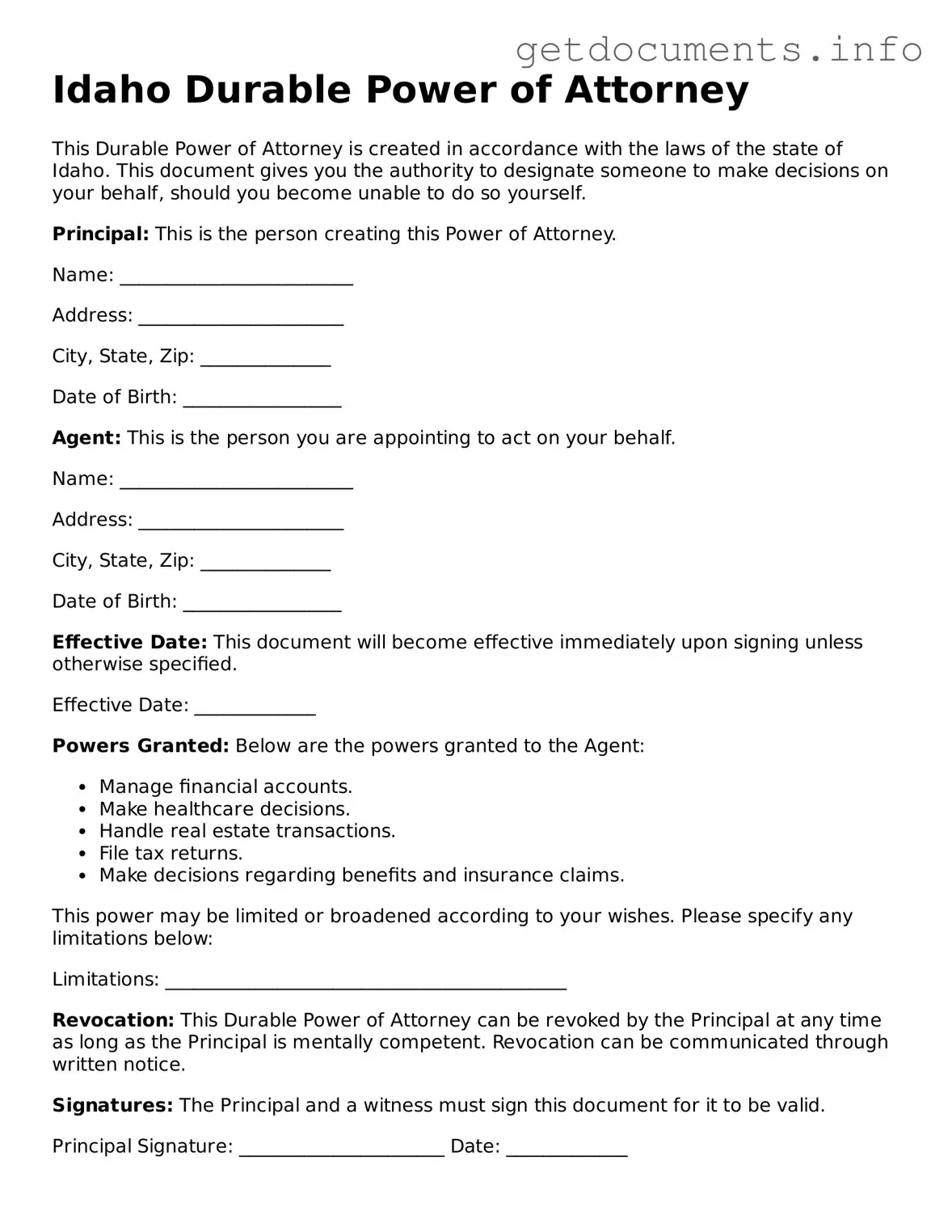Free Durable Power of Attorney Template for Idaho
A Durable Power of Attorney form in Idaho allows an individual, known as the principal, to designate another person, referred to as the agent, to make financial and legal decisions on their behalf. This document remains effective even if the principal becomes incapacitated, ensuring that their affairs are managed according to their wishes. To get started with your Durable Power of Attorney form, click the button below.
Access Durable Power of Attorney Editor

Free Durable Power of Attorney Template for Idaho
Access Durable Power of Attorney Editor
Got places to be? Complete the form fast
Fill out Durable Power of Attorney online and avoid printing or scanning.
Access Durable Power of Attorney Editor
or
⇩ PDF File
